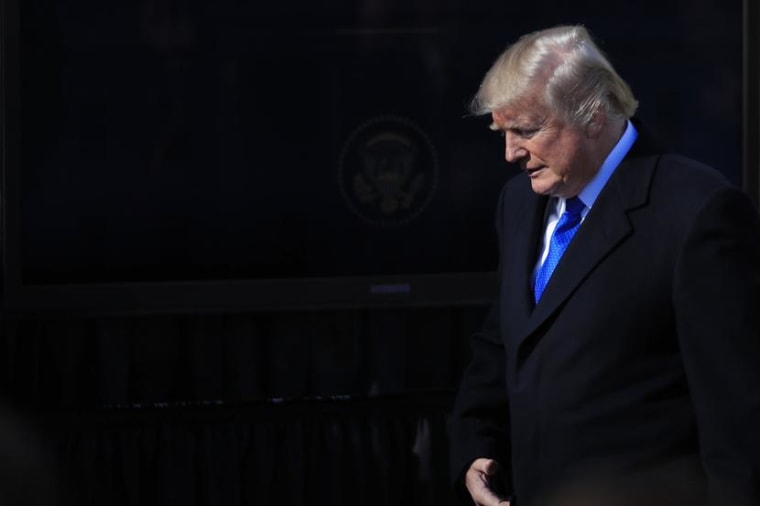There's been considerable debate for months in Democratic circles about how best to run against Donald Trump. Should the party focus on "kitchen-table" issues, such as health care? Or maybe pursue a referendum on the president's character, and track record for brazen dishonesty, divisiveness, and bigotry?
Should the focus be on Trump's failed foreign policies and the damage he's done to the United States' global standing? Or maybe on broader threats to pillars of our society such as the rule of law and the health of our democratic institutions? Should Democrats argue that the economy isn't nearly as strong as the president likes to pretend, or perhaps shine a light on broader threats, such the climate crisis and future of the courts?
And while all of these possible avenues have merit, there's another possibility. Taking stock of Trump's pardons yesterday, and the Republican's eagerness to help those who engaged in corruption, I found myself thinking about a recent USA Today op-ed from Democratic strategist Jesse Ferguson, published in between the House approving articles of impeachment against Trump and the start of the Senate trial.
[T]he 1974 elections weren't a referendum on President Richard Nixon's impeachment. They were a referendum on his crime: Watergate. Likewise, what the people may vote on in 2020 is criminality and the rule of law. And if that happens, Trump is in trouble.... Democrats have to focus our argument on the repeated corrupt and criminal activities that Trump and his allies have been caught engaging in.
Yesterday certainly helped add fuel to this fire. Americans saw a president abusing his pardon authority, rescuing a variety of notorious figures who were caught engaging in flagrant corruption. Trump's actions were accompanied by a White House statement that tried to downplay the importance of the convicts' misdeeds.
The Daily Beast also highlighted the fact yesterday that one of the beneficiaries of a presidential pardon may have been helped by the fact that his relatives made multiple generous contributions to the Trump Victory Committee.
That said, yesterday was hardly the first time Americans were confronted with concerns about Trump's corruption. On the contrary, it's been a staple of his entire presidency, which has been defined by the Republican's efforts to profit from his office, and use his power toward corrupt ends.
Let's also not forget the number of close Trump associates who've recently ended up in prison.
What's more, this entire area of concern was also a staple of Trump's work leading up to his presidency, as evidenced by his "university" and foundation, both of which were credibly accused of fraudulent, corrupt practices.
In 2016, a chunk of the electorate believed Trump was a crook, but these voters were convinced he'd be their crook. He'd lie, cheat, and steal, his backers told themselves, but Trump would apply his mischievous skillset to advancing their interests.
Now it's obvious that those hopes were misplaced. It's hardly a stretch to see this as a ripe campaign issue for a national race.

